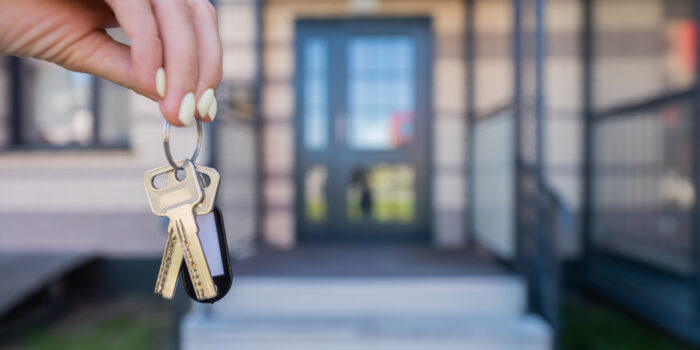Saving money for a mortgage deposit
If you’re looking to take your first steps on the property ladder and buy your first home, you’ll need to save for a deposit. In this helpful guide, we look at how much you need and provide some tips for saving. We’ll also answer your most important questions.
How to save for a mortgage deposit
Generally speaking, when it comes to buying a house you need a deposit of at least 10-15% of the value of the property. If you were buying a house valued at £180,000 you would therefore need to save for a deposit of between £18,000 and £27,000.
This is a considerable amount of money. So, what’s the best way to save for a mortgage deposit? Let’s look at a few of your options.
Options for savings for a mortgage deposit
Buying with a partner
If you buy with a partner, it can be easier to save if you split the deposit and save together.
A gift from relatives
Many people benefit from the ‘bank of mum and dad’ to help out with all or part of the deposit. In fact in 2022, around 46% of all mortgaged first-time buyers had financial help from family.
You can also look into the following government schemes for help with getting your deposit:
Lifetime ISA
A Lifetime ISA (LISA) is a tax-free way to save for a deposit which also includes a bonus from the government. Every year, you can pay up to £4,000 into your LISA and the government will top this up by 25%, up to a maximum of £1,000 every year. This all counts towards your £20,000 annual ISA allowance.
A LISA is designed to help you get on the property ladder with a property that costs under £450,000. If you use it for something other than buying your first home or you withdraw it before you’re 60, you’ll have to pay back the 25% provided by the government.
Mortgage guarantee scheme
The government’s mortgage guarantee scheme enables you to buy a property worth up to £600,000 with just a 5% deposit. Lenders participating in the scheme must offer 5-year fixed mortgages with a 95% loan to value (LTV) ratio.
The scheme runs until 31 December 2023.
First Homes scheme
If you’re buying a new home, you may be able to benefit from the First Homes scheme where homes are offered by developers at 30-50% below the market value. The homes can’t cost more than £250,000 (£420,000 in London) after the discount has been applied. With this scheme, local councils often prioritise giving the discounts to essential workers, people already in the area or low income households.
Shared ownership
With shared ownership, you jointly own the property with a landlord, often a council or housing association. You secure a mortgage for your share and pay discounted rent on the rest.
How to make your mortgage deposit savings stretch?
When you’re trying to save for your house deposit, you need to make your money go as far as possible. These saving for a mortgage deposit tips should help:
Stop paying rent: Moving back in with parents is an option many people take. The monthly amount you were paying on rent every four weeks can go straight into your savings pot instead.
Reduce your rent: If it’s not possible to move back in with your parents, you can look to reduce your rent by moving to a cheaper place or getting a house share.
Cut down on everyday spending: Love a takeaway? Always head out on a Saturday night? It’s time to cut out unnecessary spending and put the funds towards your savings instead.
Look for a better rate on your savings: If you’re using an old savings account, your interest rate may be pretty poor. To maximise your savings, shop around and see what potential interest rates you can find.
Use a budgeting app: Making a monthly or weekly budget and sticking to it can be difficult. Especially if you’re regularly paying for things contactless on your card or via your phone (it can be hard to keep track of). A budgeting app will help you create your budget in the first place and track your spending. You’ll also get insights into how to make better use of your money.
Make extra money: Can you find a side hustle or take on an extra part time job? Whatever you can do to boost your income will help your savings in the long run.
The pros and cons of renting vs. saving for a mortgage deposit
Renting is good in the short term as it means you can likely live in an area you want to and enjoy a certain lifestyle. For many people, it seems like a more fun option than moving back in with their parents and counting the pennies.
But when you rent, your hard earned income is going into someone else’s pocket every month. If you can save for a deposit and get your foot on the property ladder, your monthly mortgage payments will go towards paying off your mortgage and increasing the equity you own in the property.
Saving for a house deposit FAQs

